Is that cystic acne? A dermatologist's dos and don'ts against the worst kind of pimples
Pretty much the nastiest type of acne, cystic acne needs to be treated with great care. A dermatologist weighs in on how to fight it.

(Photo: iStock)
There’s acne, and then there’s cystic acne. They’re large, bumpy and painful breakouts that form deep under the skin, and are way trickier to treat than the regular variety.
While other inflammatory acne like pimples can also look like pus-filled bumps, cystic acne bumps can look almost like boils, and tend to be large, at more than 10mm in diameter, and usually appear as soft, grey or skin-coloured bumps, explained Dr Wong Soon Tee, consultant dermatologist at Assurance Skin, Laser & Aesthetic.
WHAT CAUSES CYSTIC ACNE?
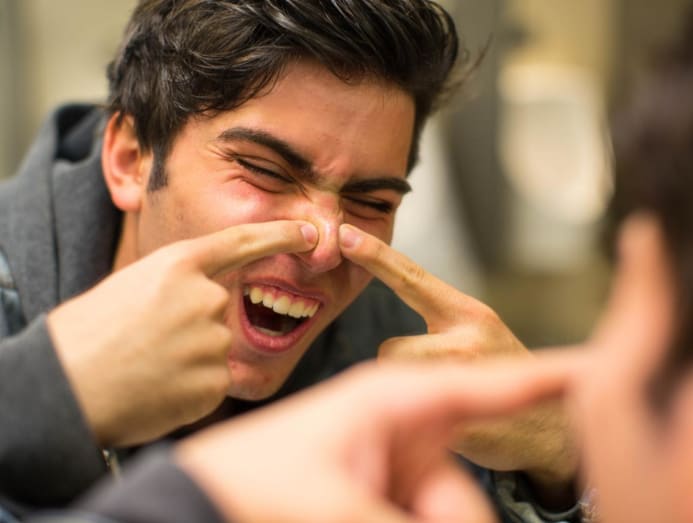
When hair follicles in the skin get clogged and trap oil and dead skin cells, pimples form, and can cause the area to become red and inflamed.
Cystic acne occurs when all that bacteria, dead skin cells and sebum that get trapped deep under the skin’s surface get infected. This can lead to a large swollen bump that’s filled with pus and very painful to the touch, and which can take weeks to subside.
The infection can spread if the cyst bursts, so under no circumstances should one try to squeeze a cystic acne bump. While most people will experience acne at some point, cystic acne is more serious, and less common.
Just like regular acne, cystic acne is not caused by eating too much greasy food or chocolate, or by poor hygiene.
According to Dr Wong, cystic acne tends to occur in people with severe acne. “Anybody can get cystic acne and the underlying cause of cystic acne is similar to other kinds of acne. However, we do not know why some people get cystic acne and others do not. There is no explanation or specific factors that predisposes one to cystic acne.”
Just like regular acne, cystic acne is not caused by eating too much greasy food or chocolate, or by poor hygiene. Hormonal changes, genetics and environmental factors, such as the products we use on our skin, may be taken into consideration. But experts agree that cystic acne is distressing and can leave deep physical and sometimes emotional scars.
HOW TO TREAT CYSTIC ACNE
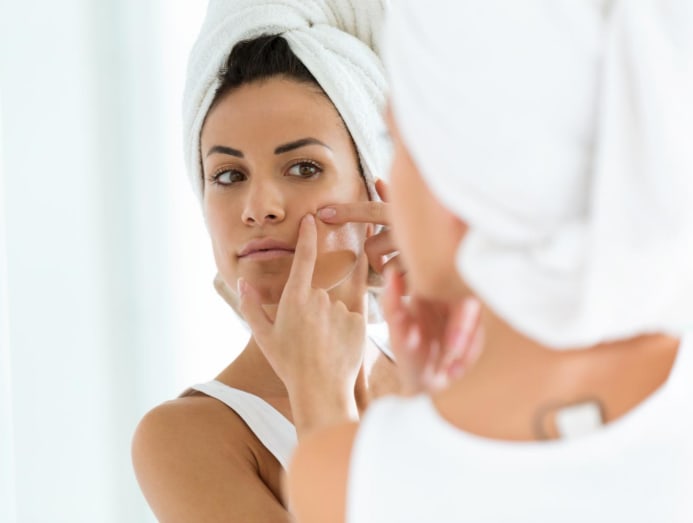
Unfortunately, cystic acne is hard to treat, and unlike most other types of acnes, it responds poorly to cream treatment. Dr Wong recommended starting medical treatment early because of the increased risk of scarring. Two common treatments are steroid injections and oral medications such as Isotretinoin (of which Accutane is one of the most popular brands).
“Early medical treatment is the key and the result is often excellent when the treatment is properly executed," Dr Wong told CNA Lifestyle.
"Other kinds of acne are easier to manage because they respond better to conventional cream and oral treatment whereas cystic acne responds only to oral medication and steroid injection treatment. Early and regular use of over-the-counter AHA and BHA exfoliants can help to prevent or slow acne progression when it is early and mild. But once things reach the cystic acne stage, one has to seek medical help.”
Of course, not everyone can afford or want to get an injection for acne, and oral meds like Accutane come with their own set of potential side effects. These remain options for those whose severe acne hasn’t responded to other treatments.
As for trying to cure cystic acne, Dr Wong had slightly bad news: “We do not cure acne. We can only control the inflammatory process with medical treatment to prevent breakout and scarring. The medical treatment is to buy time to wait for one’s acne lifespan to expire. Acne usually starts from puberty and ends some years later, although for some, it sometimes carries on into the forties.”
We do not cure acne. We can only control the inflammatory process with medical treatment to prevent breakout and scarring.
WHAT NOT TO DO IF YOU HAVE CYSTIC ACNE
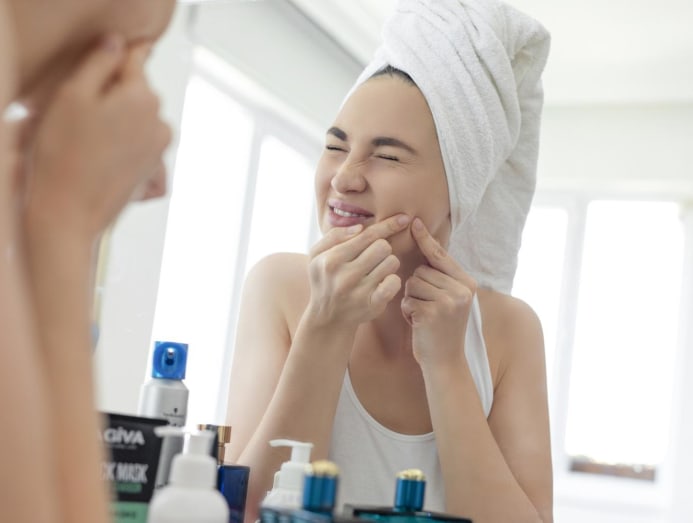
- Pick at or try to pop the cyst. Bad, bad idea. The skin will feel irritated if you keep touching it, or worse, attempt to squeeze or extract it. These treatments do not reduce the inflammation process, may cause scarring, and can cause the infection to spread to other areas. Also, it will probably be very painful.
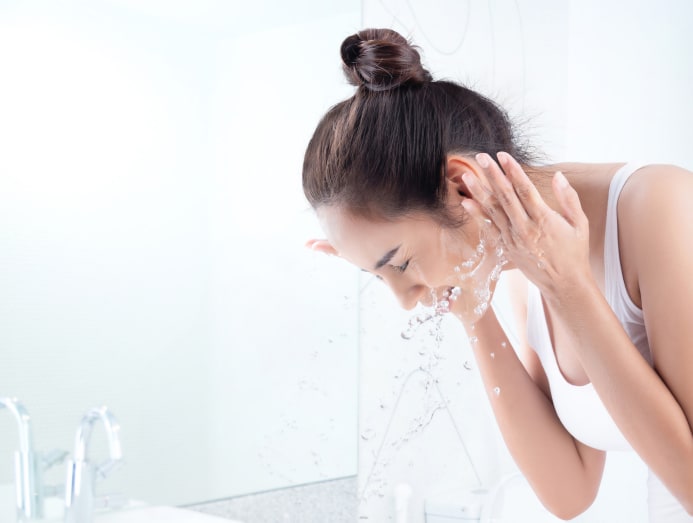
- Wash your face too often. Of course, keeping the skin clean with a gentle cleanser is important, but it’s equally paramount not to irritate the skin with too much rubbing, harsh soaps or abrasive and exfoliating products.
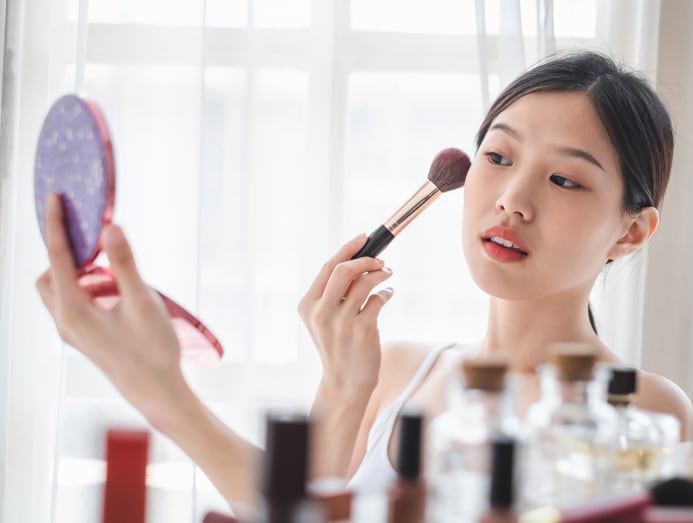
- Use heavy makeup. It’s tempting to cover acne with thick layers of concealer or foundation, but this may make things worse. Choose water-based and non-comedogenic formulations if you have to use makeup and steer clear of oily formulations to combat build-up under the skin. Also, always remove makeup thoroughly before going to bed.
- Skip the sunscreen. Wearing sunscreen daily isn’t just good practice for everyone. For those suffering from cystic acne and who are on medication, this will help protect skin that may be more sensitive to sun exposure. An oil-free sunscreen would be best to avoid clogging pores.










